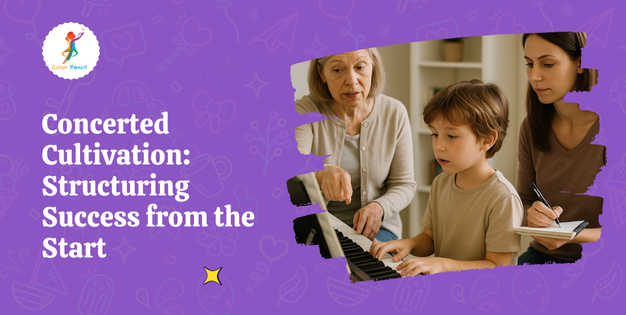
Top 10 Flashcard Combos for Holistic Toddler Learning
Did you know that up to 80% of a toddler’s brain develops in the first five years? As a parent, you’re likely eager to give

How High-Involvement Parenting Shapes Skills, Confidence, and Social Capital
For most parents, involvement in a child’s life is more than demonstrating love and affection — it’s also about orchestrating their development through structured activities, directed conversations, and cultivated experiences. A parenting style academics call “concerted cultivation” features parents actively steering a child’s growth, often with an eye toward professional and academic success.
If it can bring benefits in skill-building and confidence, it can also raise issues of balance, autonomy and pressure.

Coined by sociologist Annette Lareau, concerted cultivation is a parenting philosophy in which personal drives and skills are developed and nurtured through organized activities and intensive parent involvement. You see it affiliates more among middle- and upper-middle-class families, where there is a lot of investment of resources and time in things like enrichment activities, tutoring and intricate oversight (some might call it “coddling”) of school and social activities.
“What we are really trying to do is to make children have some sort of advantage by starting enrichment and parent involvement earlier.
This process is frequently a proxy for parental aspirations and economic means. Motivations include:
Children raised in highly structured, high-expectation environments may experience:
Positive Outcomes:
Challenges:

It’s not necessarily a bad thing, that approach — it’s how it’s used. The best of concerted cultivation can be embraced, while minimizing its downside, like so:
Cheer the Process, Not Only the Product: Reward progress, resilience and joy in learning — not just grades or wins.

Feeling Overwhelmed? Let’s Talk! Join Our Parent Forum and Get Expert Advice & Support!
Concerted cultivation may equip children to succeed in structured, competitive environments that dish out rewards only to those fluent in the rules and goals—but it does so only when accompanied by emotional support and possibilities for self-discovery. The aim is not to raise a perfect résumé — it’s to raise a well-rounded, self-assured person who can navigate the world with skill and heart.
When involvement is supplemented with listening, and structure is tempered with freedom, concerted cultivation ceases to be just a roadmap to success — it is a way to truly grow.